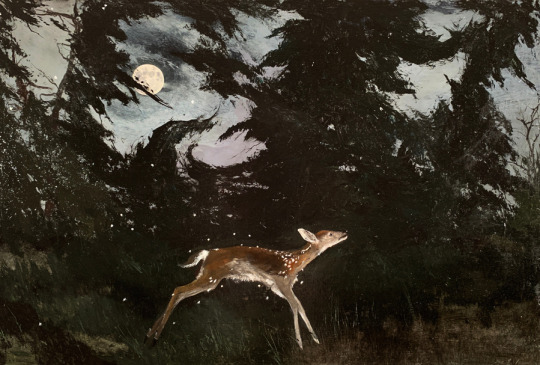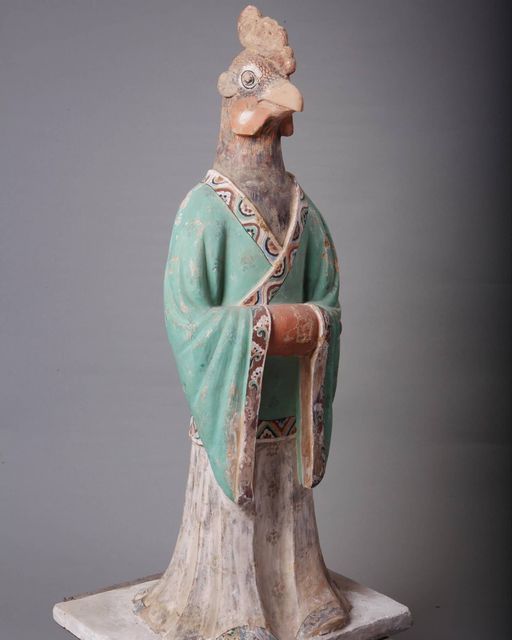Text

M. C. Goodwin
How stars are made. 2022
11K notes
·
View notes
Photo

Dick Beer (Swedish, 1893-1938), Boxare [Boxer], 1922. Oil on canvas, 160 x 90 cm.
624 notes
·
View notes
Text

Collection of women's fashions at the Longchamp races, 1900. Bibliothèque nationale de France
112 notes
·
View notes
Text

R.B. Kitaj (American, 1932-2007), Revolt on the Clyde (Hugh McDiarmid), 1966–70. Screenprint on paper.
58 notes
·
View notes
Text

Kim Dorland - All Ideas are Wrong, 2017-18, oil on linen, 96 x 73 in
48 notes
·
View notes
Text

Lin Onus - Reflections (Barmah Forest) 1994 – 95
376 notes
·
View notes
Text








KIRSTEN DUNST as CLAUDIA INTERVIEW THE VAMPIRE (1994) dir. Neil Jordan
648 notes
·
View notes
Text

Sculpture with rooster head, was found in a tomb at Gaochang, a Tang city on the edge of the Taklamakan Desert, 7th-10th century, Tang Dynasty, China.
1K notes
·
View notes
Text

Isaac Mizrahi
Vogue, September 1994
Photographed by Steven Meisel
47 notes
·
View notes
Text
Please read this man’s description of his dachshund and its most annoying habit
“I have a ridiculous dog named Walnut. He is as domesticated as a beast can be: a purebred longhaired miniature dachshund with fur so thick it feels rich and creamy, like pudding. His tail is a huge spreading golden fan, a clutch of sunbeams. He looks less like a dog than like a tropical fish. People see him and gasp. Sometimes I tell Walnut right out loud that he is my precious little teddy bear pudding cup sweet boy snuggle-stinker.
In my daily life, Walnut is omnipresent. He shadows me all over the house. When I sit, he gallops up into my lap. When I go to bed, he stretches out his long warm body against my body or he tucks himself under my chin like a soft violin. Walnut is so relentlessly present that sometimes, paradoxically, he disappears. If I am stressed or tired, I can go a whole day without noticing him. I will pet him idly; I will yell at him absent-mindedly for barking at the mailman; I will nuzzle him with my foot. But I will not really see him. He will ask for my attention, but I will have no attention to give. Humans are notorious for this: for our ability to become blind to our surroundings — even a fluffy little jewel of a mammal like Walnut.
…
When I come home from a trip, Walnut gets very excited. He prances and hops and barks and sniffs me at the door. And the consciousnesses of all the wild creatures I’ve seen — the puffins, rhinos, manatees, ferrets, the weird hairy wet horses — come to life for me inside of my domestic dog. He is, suddenly, one of these unfamiliar animals. I can pet him with my full attention, with a full union of our two attentions. He is new to me and I am new to him. We are new again together.
Even when he is horrible. The most annoying thing Walnut does, even worse than barking at the mailman, is the ritual of his “evening drink.” Every night, when I am settled in bed, when I am on the brink of sleep, Walnut will suddenly get very thirsty. If I go to bed at 10:30, Walnut will get thirsty at 11. If I go to bed at midnight, he’ll wake me up at 1. I’ve found that the only way I cannot be mad about this is to treat this ritual as its own special kind of voyage — to try to experience it as if for the first time. If I am open to it, my upstairs hallway contains an astonishing amount of life.
The evening drink goes something like this: First, Walnut will stand on the edge of the bed, in a muscular, stout little stance, and he will wave his big ridiculous fan tail in my face, creating enough of a breeze that I can’t ignore it. I will roll over and try to go back to sleep, but he won’t let me: He’ll stamp his hairy front paws and wag harder, then add expressive noises from his snout — half-whine, half-breath, hardly audible except to me. And so I give up. I sit up and pivot and plant my feet on the floor — I am hardly even awake yet — and I make a little basket of my arms, like a running back preparing to take a handoff, and Walnut pops his body right into that pocket, entrusting the long length of his vulnerable spine (a hazard of the dachshund breed) to the stretch of my right arm, and then he hangs his furry front legs over my left. From this point on we function as a unit, a fusion of man and dog. As I lift my weight from the bed Walnut does a little hop, just to help me with gravity, and we set off down the narrow hall. We are Odysseus on the wine-dark sea. (Walnut is Odysseus; I am the ship.)
All of evolution, all of the births and deaths since caveman times, since wolf times, that produced my ancestors and his — all the firelight and sneak attacks and tenderly offered scraps of meat, the cages and houses, the secret stretchy coils of German DNA — it has all come, finally, to this: a fully grown exhausted human man, a tiny panting goofy harmless dog, walking down the hall together. Even in the dark, Walnut will tilt his snout up at me, throw me a deep happy look from his big black eyes — I can feel this happening even when I can’t see it — and he will snuffle the air until I say nice words to him (OK you fuzzy stinker, let’s go get your evening drink), and then, always, I will lower my face and he will lick my nose, and his breath is so bad, his fetid snout-wind, it smells like a scoop of the primordial soup. It is not good in any way. And yet I love it.
Walnut and I move down the hall together, step by bipedal step, one two three four, tired man and thirsty friend, and together we pass the wildlife of the hallway — a moth, a spider on the ceiling, both of which my children will yell at me later to move outside, and of course each of these creatures could be its own voyage, its own portal to millions of years of history, but we can’t stop to study them now; we are passing my son’s room. We can hear him murmuring words to his friends in a voice that sounds disturbingly like my own voice, deep sound waves rumbling over deep mammalian cords — and now we are passing my daughter’s room, my sweet nearly grown-up girl, who was so tiny when we brought Walnut home, as a golden puppy, but now she is moving off to college. In her room she has a hamster she calls Acorn, another consciousness, another portal to millions of years, to ancient ancestors in China, nighttime scampering over deserts.
But we move on. Behind us, in the hallway, comes a sudden galumphing. It is yet another animal: our other dog, Pistachio, he is getting up to see what’s happening; he was sleeping, too, but now he is following us. Pistachio is the opposite of Walnut, a huge mutt we adopted from a shelter, a gangly scraggly garbage muppet, his body welded together out of old mops and sandpaper, with legs like stilts and an enormous block head and a tail so long that when he whips it in joy, constantly, he beats himself in the face. Pistachio unfolds himself from his sleepy curl, stands, trots, huffs and stares after us with big human eyes. Walnut ignores him, because with every step he is sniffing the dark air ahead of us, like a car probing a night road with headlights, and he knows we are approaching his water dish now, he knows I am about to bend my body in half to set his four paws simultaneously down on the floor, he knows that he will slap the cool water with his tongue for 15 seconds before I pick him up again and we journey back down the hall. And I find myself wondering, although of course it doesn’t matter, if Walnut was even thirsty, or if we are just playing out a mutual script. Or maybe, and who could blame him, he just felt like taking a trip.”
45K notes
·
View notes







